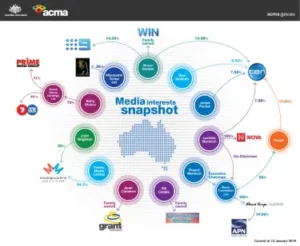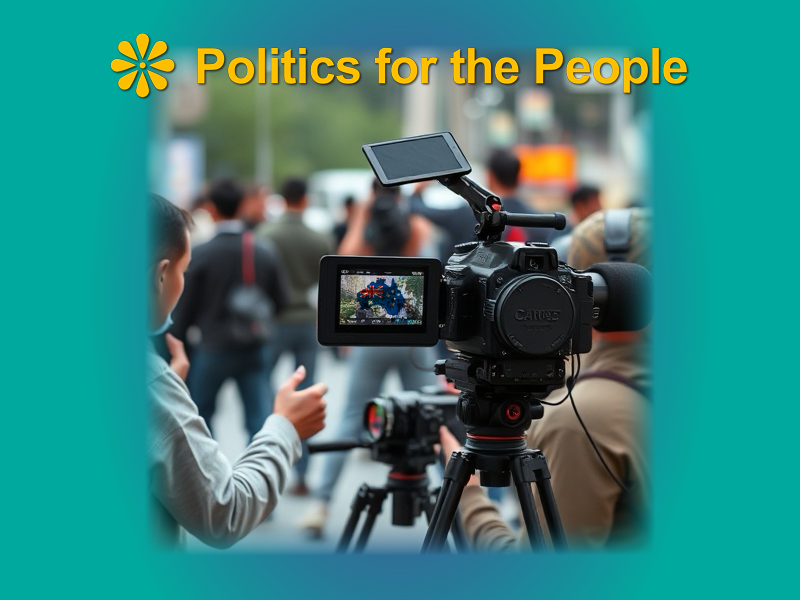Introduction
In the robust framework of democracy, the essence of an informed public opinion is paramount. However, when the information feeding this opinion is manipulated by those in power, the very foundation of democracy is shaken. In Australia, sophisticated strategies by governments, corporations, and powerful entities not only shape public opinion but also steer it to serve specific agendas. This manipulation fosters division and obscures the true causes of societal challenges, affecting everything from environmental policies to social justice.
Media Influence Australia Needs Control
Media Ownership in Australia

In Australia, the media landscape is dominated by a few powerful moguls who wield considerable influence over national discourse. This concentration of media ownership means that a small group of individuals can manipulate public opinion to reflect their own economic and political interests. These entities often skew reporting to support specific political parties or policies, which can alter public belief and influence voting behaviour.
Effects of Media Bias
The repercussions of this media bias are profound. By presenting information through a filtered lens, these media houses can obscure truth, amplify fears, and mislead the public on critical issues. This not only misguides citizens but can also lead to a polarized society where separate groups receive completely different information about the same events, leading to increased societal divisions.
Political Manoeuvring and Public Misdirection
The Role of Spin Doctors
Spin doctors in Australian politics craft narratives that deflect responsibility and manipulate public sentiment. By employing emotive language and selective presentation of facts, they can shift the blame for domestic issues onto convenient scapegoats such as immigrants, minorities, or other states. This tactic diverts public attention from pressing issues like economic mismanagement or policy failures.
Consequences of Political Scapegoating
The impact of this political scapegoating is a more divided electorate, which can stymie effective governance. As the public squabbles over red herrings, significant legislative and policy challenges, such as climate change or health care reform, receive less attention and debate than they urgently need.
The Undue Influence of Corporations
Corporate Lobbying Explained
Corporations in Australia exert considerable influence over public policy through extensive lobbying efforts. By investing in political campaigns and engaging lobbyists, these entities push for legislation that helps their business interests, often at the expense of the public good. This behind-the-scenes influence is typically opaque, with little transparency about how decisions are made or who is influencing them.
Impact on Policy and Society
This corporate influence often results in policies that prioritize business interests over environmental conservation, public health, and economic equality. As a result, laws and regulations may be skewed to favour the wealthy and powerful, worsening inequality and undermining the democratic process.
The Algorithmic Bias of Social Media
Social media platforms use algorithms to curate and present content that maximizes user engagement. These algorithms tend to create and reinforce echo chambers—spaces where users are exposed to views that align with their own. This mechanism exploits natural human tendencies towards confirmation bias, significantly affecting public discourse and increasing polarization.
Conclusion and Call to Action
The influence of media, politics, and corporate interests on public opinion in Australia is a critical challenge to the integrity of our democracy. As engaged citizens, it is our responsibility to critically evaluate the information we consume and to demand higher standards of transparency and accountability from those in power.
Question for Readers
Have you noticed an instance where your opinions were shaped by media bias or political spin? How did it affect your perspective on the issues?
Call to Action
Step forward and take part actively in the democratic process. Challenge narratives, verify sources, and demand clarity and accountability from media and political figures. By doing so, we can hope to foster a more informed, fair, and representative public discourse.

